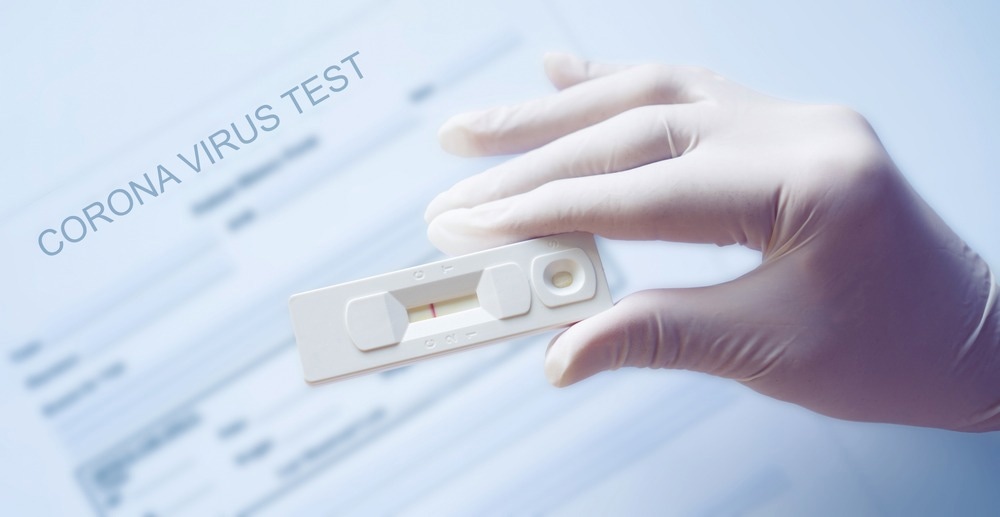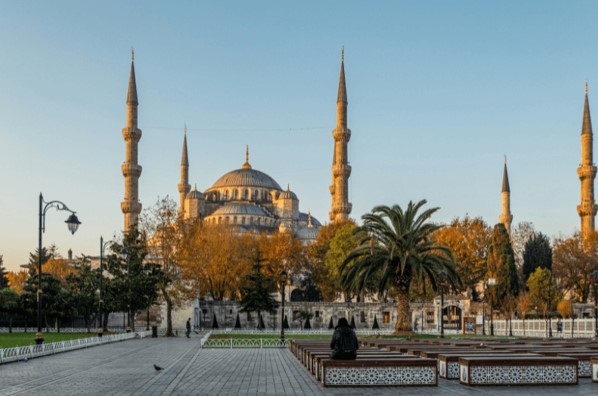In a latest review released in Morbidity and Mortality Weekly Report, researchers assessed the impression of pre-departure screening on critical acute respiratory syndrome coronavirus 2 (SARS-CoV-2)-positivity charges write-up-arrival between worldwide travelers.

Qualifications
From 6 December 2021, international air travelers boarding flights to the US had been needed to present both a SARS-CoV-2-destructive consequence taken a person working day or considerably less prior to departure or confirmation of coronavirus disorder 2019 (COVID-19) recovery in just the past 90 days. From 12 June 2022, pre-departure COVID-19 tests was not expected, but the Facilities for Disorder Regulate and Avoidance (CDC) continued recommending it. Numerous modeling reports estimate that pre-departure testing a working day prior or on the working day of journey decreases SARS-CoV-2 transmission or importation by pretty much 31{6932ee47e64f4ce8eedbbd5224581f6531cba18a35225771c06e4f1b3f0d9667} to 76{6932ee47e64f4ce8eedbbd5224581f6531cba18a35225771c06e4f1b3f0d9667}.
About the research
In the current study, researchers assessed the outcome of COVID-19 screening pre-departure on tests benefits post-arrival in worldwide travelers.
The Traveler-dependent Genomic Surveillance Software monitored travelers at worldwide airports to explore novel and creating SARS-CoV-2 variants to facilitate throughout the world surveillance. Volunteering worldwide travellers aged 18 yrs or above arriving at airports found in Atlanta, Ga New York, New York Newark, New Jersey and San Francisco, California supplied a reduce nasal swab sample after arrival at the airport.
Participants answered a structured questionnaire inquiring about their demographic details, the origin of their flight, whether or not pre-departure COVID-19 testing was carried out, and no matter whether a molecular or antigen take a look at experienced been executed.
Dry nasal swab specimens have been gathered by the flight origin nation. A Ginkgo Bioworks laboratory community laboratory acquired pooled samples of reverse transcription–polymerase chain reaction (RT-PCR) tests of SARS-CoV-2. The workforce when compared the results of the post-arrival RT-PCR examination from 20 March to 11 June, when pre-departure tests was necessary, to all those from 12 June to 3 September, when the predeparture assessment was voluntary.
Final results
Over the interval among 20 March and 3 September 2022, practically 28,056 vacationers incoming from 24 nations around the world have been screened for SARS-CoV-2, supplying 3,049 pooled samples with an regular of 8 participant specimens for each pool. From 20 March to 11 June, somewhere around 13,190 out of 16,668 members documented acquiring a pre-departure take a look at.
However, involving 12 June and 3 September, this proportion dropped by 80{6932ee47e64f4ce8eedbbd5224581f6531cba18a35225771c06e4f1b3f0d9667} to 1786 out of 11,123 men and women reporting owning taken a pre-departure take a look at. Also, antigen tests were being administered to 10,349 of the 14,976 vacationers who indicated the kind of pre-departure take a look at.
The staff mentioned that 691 out of 3,049 specimen pools examined SARS-CoV-2-optimistic through RT-PCR during the analysis period of time. The proportion of good pools grew from 17.9{6932ee47e64f4ce8eedbbd5224581f6531cba18a35225771c06e4f1b3f0d9667} to 56{6932ee47e64f4ce8eedbbd5224581f6531cba18a35225771c06e4f1b3f0d9667} among 20 March and 11 June, which lowered to 28.{6932ee47e64f4ce8eedbbd5224581f6531cba18a35225771c06e4f1b3f0d9667} concerning 12 June and 3 September. The rise in the proportion of positive submit-arrival examination results from 20 March to 11 June and 12 June to 3 September was constant throughout nations, assortment airports, pool measurements, and incidences and was apparent in the two bivariate and univariate logistic regression. Men and women collaborating in the review throughout each and every time period have been of very similar gender and age.
Immediately after statistical adjustment for the incidence of COVID-19 in the flight’s pool size, place of origin, and assortment airport was performed, the outcomes of a multivariable product exposed that sample pools collected involving 20 March and 11 June have been 52{6932ee47e64f4ce8eedbbd5224581f6531cba18a35225771c06e4f1b3f0d9667} a lot less likely to test SARS-CoV-2 good as as opposed to all those gathered when a pre-departure assessment was voluntary.
Conclusion
The analyze results confirmed that put up-arrival COVID-19 take a look at findings had a substantially decreased chance of testing optimistic when COVID-19 tests pre-departure was necessary as opposed to the 12-7 days period right after the screening was deemed voluntary. In accordance to observed and genuine-environment traveler information and facts, these outcomes confirmed the efficacy of pre-departure tests as a procedure for lowering SARS-CoV-2 transmission related to vacation.




More Stories
A Golden Week for China Air Travel May Stem Drop in Oil Prices
Why is flying in the summer so expensive? Cheap flights can be scarce
Brace yourself for a summer of air travel hell